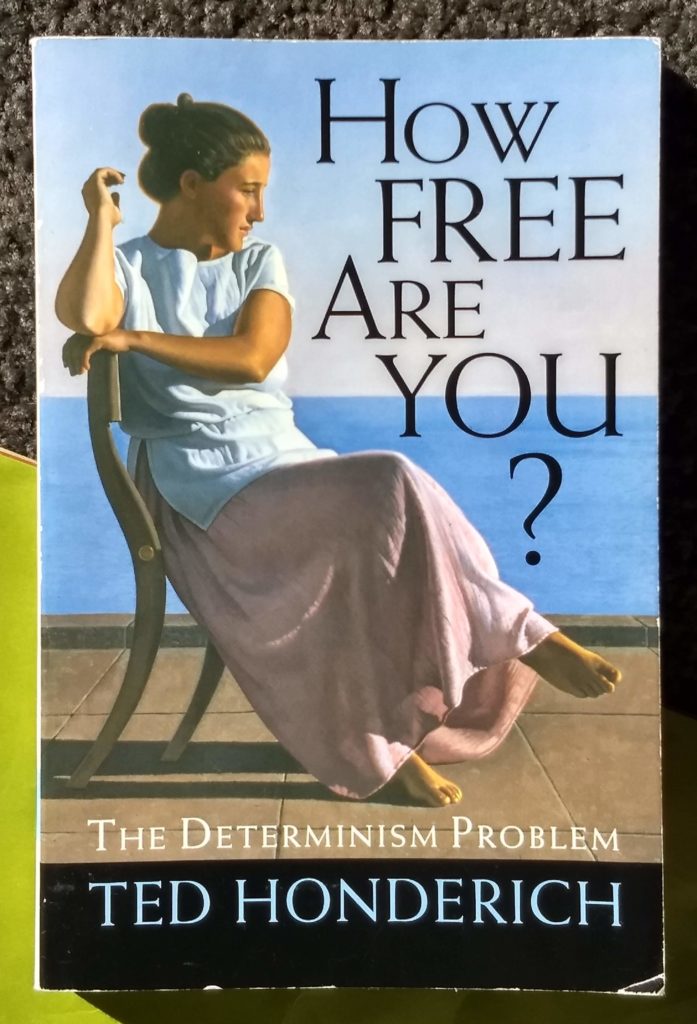
Science tells us that determinism (or near-determinism) is very likely to be true. Yet we feel as if we have free will. How can these be reconciled?
The physical world does appear to operate according to deterministic laws (or at least near-deterministic, allowing for quantum randomness). Yet our minds, thoughts, hopes, wishes etc. don’t seem to be part of the physical world. So how can they fit in with a physically determined universe? In this book, Ted Honderich gives a good sketch of how the interaction between our mental states and the physical world could be compatible with determinism. He starts with a very careful analysis of causation, and shows that mental events could still cause physical events, even in a physically determined universe. This part of the book is enjoyable to work through and to me, reasonably convincing. As to the exact nature of mental events, this will no doubt require a lot of experimentation and so Honderich doesn’t even speculate on it. As Wittgenstein said, what we cannot speak about we must pass over in silence.
Another way to resolve the interaction of mental and physical is provided by epiphenomenalism. According to that theory, events in our brains cause our thoughts, but our thoughts themselves don’t have any physical effects – they just feel as if they do. Honderich is very dismissive of this, but I think it is actually very close to his own idea – it seems to me that the difference is just in the way he thinks about causation. I always thought epiphenomenalism had a lot going for it, and Honderich’s extension of it seems to me as if it could actually be true.
Honderich identifies two different ways in which we can be said to be free. We can act according to our desires and natures (which we surely do) – this is certainly compatible with determinism. But in addition, we feel we don’t just act in this way but rather that it is we who originate our acts instead of them just being caused by our desires and natures. This is what we usually mean by Free Will, which as Honderich points out is too poorly defined and understood to even be evaluated. It’s not right – it’s not even wrong.
And yet we do feel that we have this undefinable thing called “free will”. Even if some clever philosopher shows us that it doesn’t make sense, we can’t bring ourselves to believe it. That is the problem:
The real problem of determinism and freedom is the finding or making of a satisfactory response to the likely truth of determinism.
In a nutshell, Honderich thinks that determinism is perfectly compatible with the first idea of freedom – that we act freely according to our desires and natures – but it is not compatible with the idea that we are “selves” who originate our actions, which are otherwise uncaused. This idea is worked up throughout the book, and Honderish discusses how we can reconcile that with the way we think about praise, blame, punishment and so on.
I do enjoy Hoderich’s prose style: he writes clearly with a lot of examples. His style is direct, precise, slightly quaint, but not fussy. I think this style is well suited to what he is trying to do: not just lay out a technical argument, but to explain how we can live with its consequences. This book doesn’t offer a completely “satisfactory response” to determinism, but it does set us on the right path.